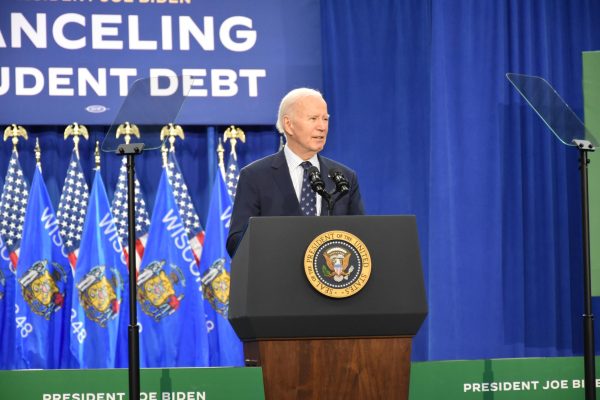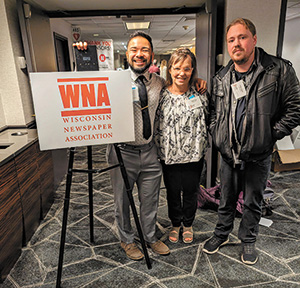Presidential debates provide lessons in rhetorical strategy
October 18, 2016
Presidential debates can at times seem as chaotic and nonsensical as a shouting match between toddlers.
Hillary Clinton and Donald Trump during their first two debates have had their share of back and forth. But amidst the attempted one-liners and personal attacks both candidates are using organized rhetorical strategy.
Elizabeth Galewski, a debate and rhetoric professor at Madison College, had a few insights and opinions on the events taking place. Galewski, a Milwaukee native, worked in the White House and on Capitol Hill during what she calls her “first career.”
Her interest in debate and rhetoric revolves around the notion that “an arguer’s word choice can shape how an audience views reality in order to steer them toward the arguer’s conclusion.” In short, persuasive speaking.
“Ultimately I’ve always been interested in power” and that rhetoric is a way in which people can wield power without devolving into violence, she said.
Galewski asserts that everyone would be better off if they had a better understanding of rhetorical skill.
“It’s about getting what you want,” she said. “Do you know how to speak so that the chances go up that you’ll get what you want? Or are you speaking in ways that make the odds go down?”
Clinton, who’s trained as a lawyer, acts that way on the stage. Trump, a business man and reality star, acts differently.
Galewski said that Clinton’s lawyerly style works both for and against her.
“She appears reasonable and articulate in relation to her opponent” on one hand, and on the other, “it plays to her disadvantage, since many voters would like to connect with her on a more human level.”
In comparison Trump’s blustery approach nurses the country’s perception of him as impulsive and calls into question his qualifications to be president, she said. When asked how best to combat such a style Galewski said, “Like Clinton, remain visibly unmoved.”
Trump’s decision to bring women who’ve accused President Bill Clinton of sexual misconduct to the second debate was a sensational and unprecedented move in presidential campaigning.
Galewski argued Trump was trying to humiliate Clinton and that the action was ill-advised. She called it an “argumentative foul,” stating citizens should disregard such actions and focus on the actual issues.
“Since Clinton proved unflappable, the strategy failed,” she said.
Debates are a way for voters to learn more about the candidates’ policies and gauge how well they would perform in stressful and high-stakes situations.
Being able to understand the underpinnings of what is happening on a debate stage and how the candidates are using their words and actions to sway the audience provides viewers with a strong and informed perspective.
The third and final presidential debate for this year will be Wednesday, Oct. 19, at 8 p.m. (CST) in Las Vegas., Nevada.










